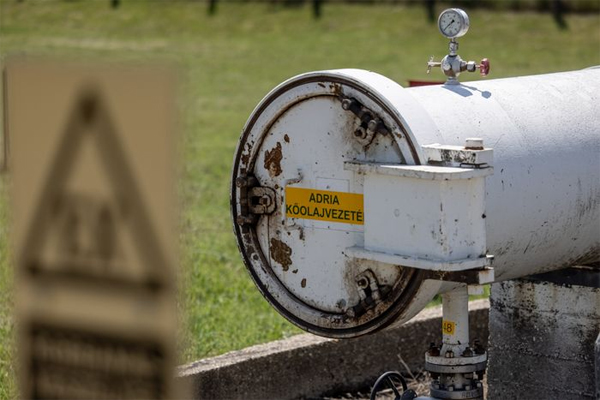
William Watts, MarketWatch
NEW YORK
EnergiesNet.com 08 09 2022
Oil futures ended slightly lower Tuesday, unable to maintain gains seen after Russia halted crude flows along the Druzhba pipeline toward Hungary, the Czech Republic and Slovakia.
Price action
- West Texas Intermediate crude for September delivery CL.1, 0.02% CL00, 0.03% CLU22, 0.03% fell 26 cents, or 0.3%, to close at $90.50 a barrel on the New York Mercantile Exchange.
- October Brent crude BRN00, +0.23% BRNV22, +0.23%, the global benchmark, lost 34 cents, or 0.4%, to settle at $96.31 a barrel on ICE Futures Europe.
- Back on Nymex, September gasoline RBU22, +0.57% rose 2.6% to $2.9602 a gallon.
- September heating oil HOU22, 1.68% jumped 4.9% to $3.3338 a gallon.
- September natural gas NGU22, 0.26% gained 3.2% to $7.833 per million British thermal units.
Market drivers
Oil was lifted in early trade after Russia suspended crude flows through the Druzhba pipeline toward Hungary, the Czech Republic and Slovakia after sanctions prevented payment of a transit fee, Bloomberg reported. Druzhba is the world’s longest pipeline network.
But upside was limited after the European Union on Monday presented what it described as its final text for restoring the 2015 nuclear accord with Iran, signaling it was up to Tehran to take or leave it. Iranian officials have said they delivered an initial response to the draft and would make further points at a later date, news reports said.
Optimism remains over a potential deal, which “could see Iranian crude supply flood the market, which would be welcomed by importers who stepped away from Russian supplies due to the war in Ukraine,” said Mihir Kapadia, chief executive of Sun Global Investments.
WTI slumped last week to a six-month low, while Brent hit its lowest since mid-February as recession fears overshadowed supply concerns. Recession worries were blunted last Friday after a much stronger-than-expected U.S. jobs report for July.
Demand concerns may remain difficult to shake as China crude imports remain subdued in light of the country’s efforts to contain COVID-19 outbreaks.
“Unless domestic demand picks up noticeably or more fuel exports are allowed, refineries are hardly likely to want to import more crude oil. Chinese crude oil imports are set to decrease for the second year in a row, resulting in the lowest annual import volume since 2018,” said Carsten Fritsch, commodity analyst at Commerzbank, in a note.
“For now the days when China served as the engine of global oil demand are a thing of the past. And this will do nothing to ease demand concerns on the oil market,” he wrote.
marketwatch.com 08 09 2022












